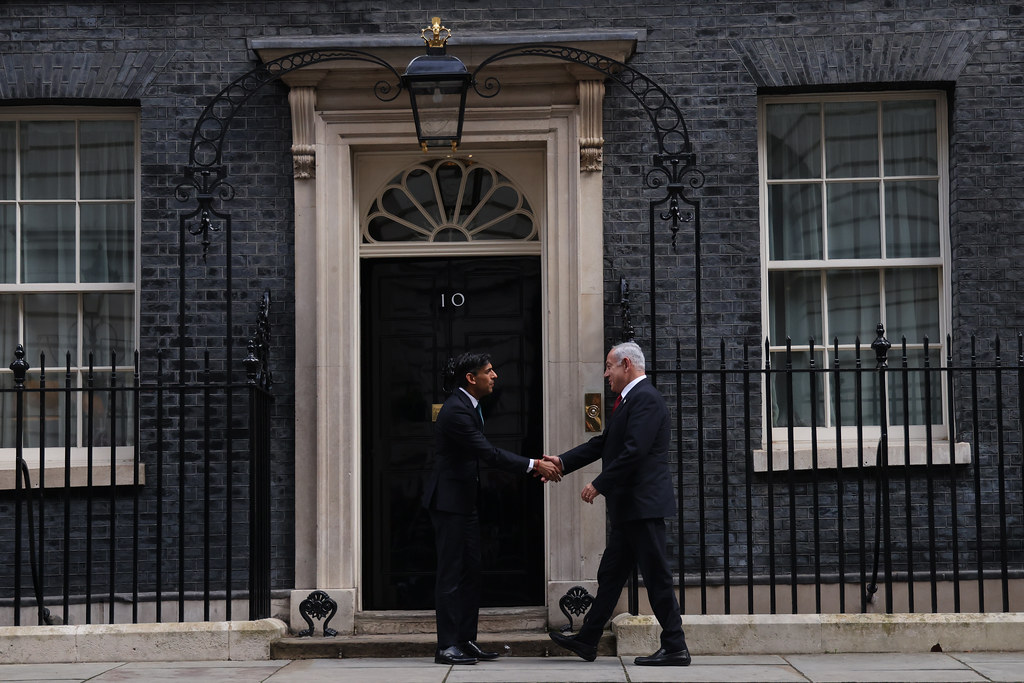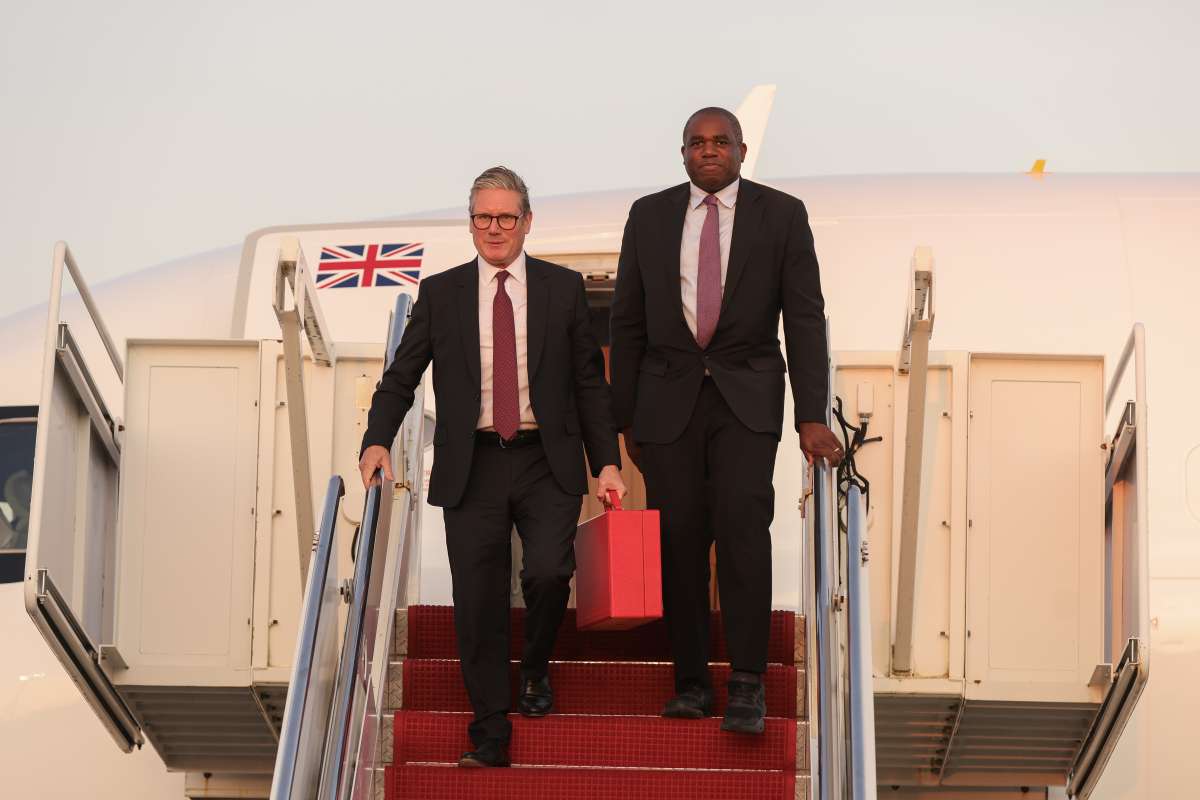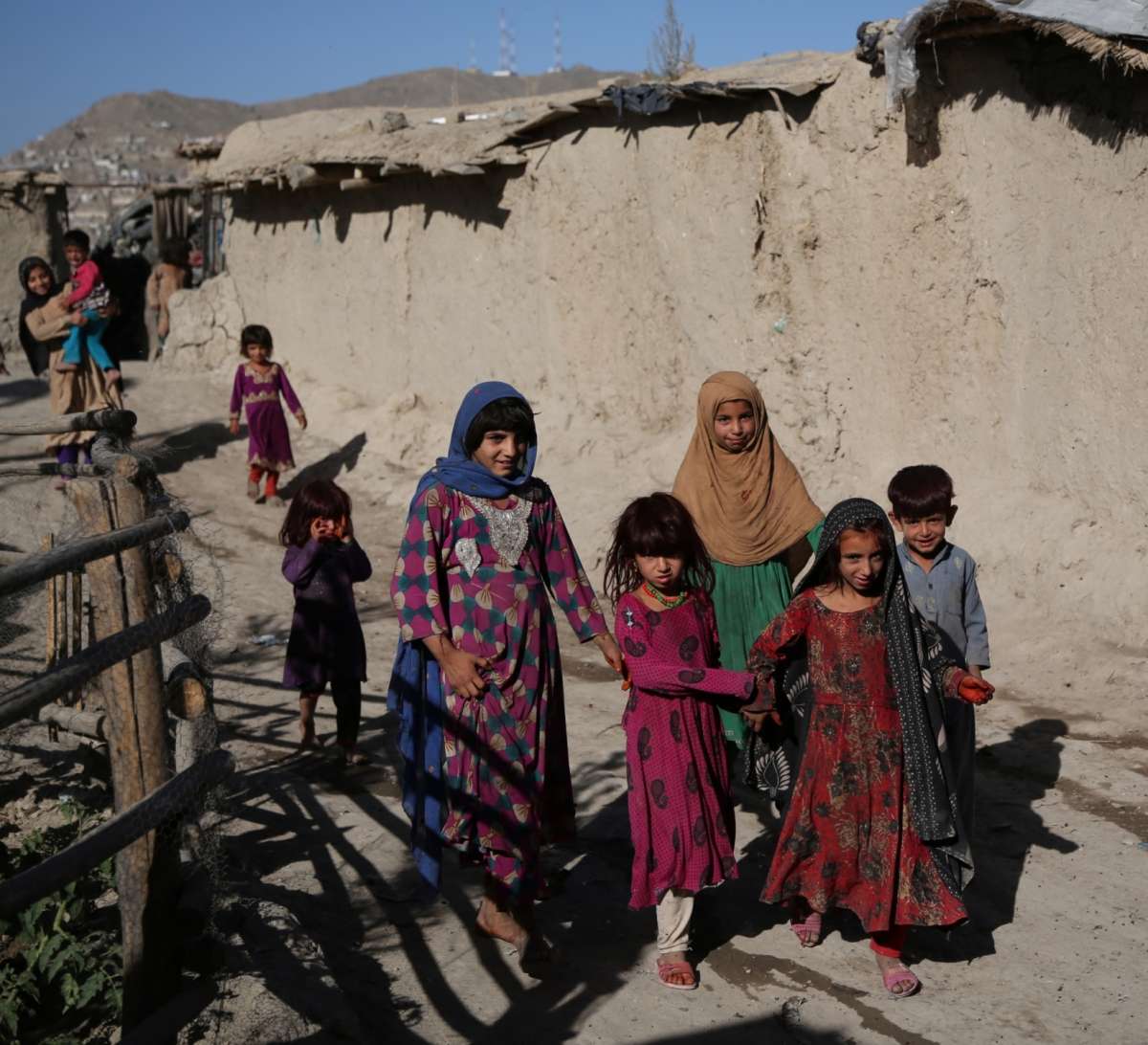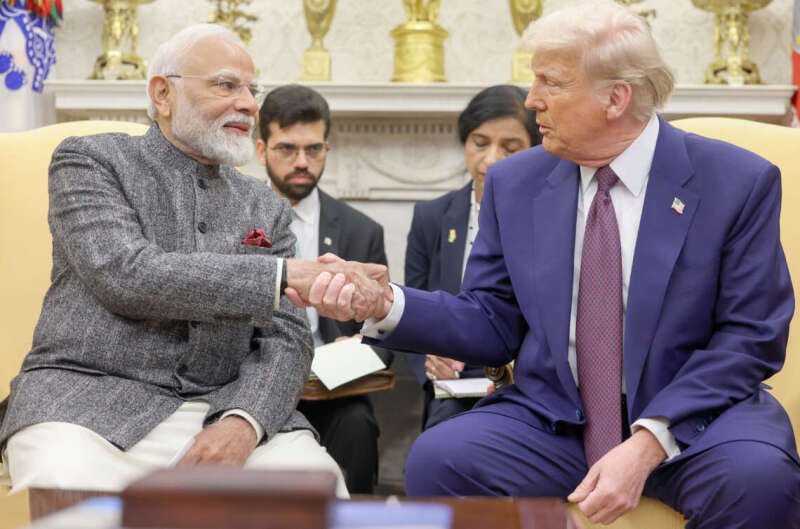Britain has a historical responsibility to push for a solution. The British government was the first major power that recognised the Zionists’ claim to the land of Ottoman Palestine…reports Asian Lite News
British Foreign Secretary David Cameron’s remarks that the United Kingdom is considering recognising the Palestine state signals a change in the thinking of at least a section of the British government towards the Palestine question after the Israel-Hamas war of October 7.
The comment triggered criticism within Conservative Party circles, with Downing Street stating later that the British government’s policy towards the issue had not changed. Yet, the debate, which included reports in the American media that the State Department is reviewing options for possible recognition of the Palestine state, suggests that the Palestine question is back at the centre of the political parleys of the major powers.
Before October 7, Israel, its Arab partners and western allies thought they could ignore the Palestine question and go ahead building a new West Asia. Hamas attacks and the subsequent Israeli invasion of Gaza show that finding a solution to the Palestine question is an imperative for peace and stability in a strife-stricken West Asia.
And, one of the globally recognised and practical pathways to peace is a two-state solution — a viable, independent, sovereign Palestine state created with international recognition.
Britain has a historical responsibility to push for a solution. The British government was the first major power that recognised the Zionists’ claim to the land of Ottoman Palestine.
In 1917, during the First World War, the British government issued the Balfour Declaration, supporting the creation of “a homeland” for the Jewish people “in Palestine”. The declaration gave a major boost to the Zionist movement, promoting Jewish migration from Europe and the building of settlement communities in historical Palestine (Ottoman and British), culminating in the creation of Israel in 1948.
At least from the Oslo process of the early 1990s, there were multiple diplomatic attempts in finding a mutually acceptable two-state solution, but which were futile as Palestine remained under occupation.
Today, there are roughly 7,00,000 Jewish settlers in the West Bank and East Jerusalem; and Gaza is being destroyed by Israel. Israeli leaders, including Benjamin Netanyahu, have repeatedly rejected the two-state solution, while the far-right settlers are pushing for the control of the whole of Palestinian territories.
This is an unsustainable scenario, producing cycles of violence and instability. The two-state proposal is already on its deathbed, given the mushrooming of settlements, growing violence, and the rise of far-right extremists in Israel and Islamist militants in Palestinian territories.
If the British government realises its historical responsibility, does a reality check of its current policy and becomes ready to offer a political horizon to the Palestinians, it would be a welcome step.
The UK is among those continuing to argue that a two-state solution is the only viable long-term solution to the conflict. But such a proposal faces fierce resistance from Netanyahu and members of his government. The Israeli prime minister has called for “full Israeli security control over the entire area in the west of Jordan,” a move he made clear is “contrary to a Palestinian state.”
The UK government has previously said only that it will “recognize a Palestinian state at a time when it best serves the objective of peace” and has rejected calls from British lawmakers to go further.
Britain, the US and other Western countries have supported the idea of an independent Palestine existing alongside Israel as a solution to the region’s most intractable conflict, but have said Palestinian independence should come as part of a negotiated settlement. There have been no substantive negotiations since 2009.
Speaking to the Conservative Middle East Council at the House of Commons, Cameron said such recognition – after Hamas releases all hostages – would represent “irreversible progress to a two-state solution and, crucially, the establishment of a Palestinian state.”
“We have a responsibility there because we should be starting to set out what a Palestinian state would look like; what it would comprise; how it would work,” he said. “As that happens, we, with allies, will look at the issue of recognizing a Palestinian state, including at the United Nations. This could be one of the things that helps to make this process irreversible.”
The UK is pushing a five-point plan that would see an end to the fighting, the release of hostages held in Gaza, a “political horizon” for a two-state solution, and a technocratic Palestinian government that would run both Gaza and the West Bank.
It would necessitate Hamas leaders being expelled to another country, a move they have rejected.
The creation of Israel and the subsequent Arab-Israeli war of 1948 saw many Palestinians forced from their homes, in what is known as the Nakba, or “catastrophe” in English.
As such, the UN gave around 750,000 people refugee status, defined as people “whose normal place of residence was Palestine during the period 1 June 1946 to 15 May 1948, and who lost both home and means of livelihood as a result of the 1948 conflict”.













